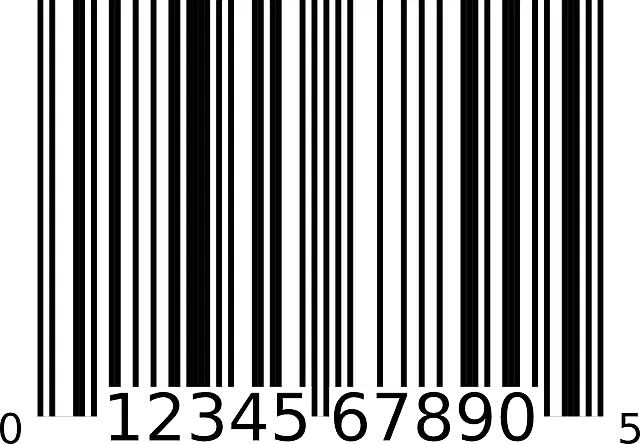Want to expand your brand by selling physical merchandise online and IRL retail outlets? Learning how to identify and differentiate barcodes is essential for physical sales success.
by Chris Huff from the Disc Makers Blog
Barcodes! You will need them if you are going to sell your physical product in any kind of retail outlet — online or offline. Every product needs its own individual bar code; this is how retailers keep track of sales and inventory. Initially developed for supermarkets, the barcode has infiltrated almost every transaction in modern life, from tracking packages at the post office to keeping tabs on nuclear waste.
While there are standards for these codes, there are variations depending on the country/region and product. Here’s a basic breakdown of the difference between EAN vs UPC, EAN vs GTIN, and UPC vs GTIN to help you determine what kind of barcode you might need to sell your CDs and vinyl.

Understanding the 3 different types of barcodes
1. UPC
UPC stands for Universal Product Code and is a 12-digit code used only in the United States and Canada. You will possibly see the actual barcode itself and not just the number referred to as a “UPC barcode,” which can be a source of confusion.
2. EAN
EAN stands for European Article Number and is a 13-number code commonly called EAN-13. The EAN barcode is the international standard used in Europe, Asia, and other regions. It has been incorporated into the GTIN as of 2009, but many still refer to it as EAN.
3. GTIN
GTIN stands for Global Trade Item Number and is the new naming standard to unify UPC and EAN in one global system — helpful in our modern interconnected world. Each country has its own country code. There are four types of GTIN codes:
- GTIN-12 = UPC
- GTIN-13 = EAN
- GTIN-8 = EAN-8 (a shortened code used in Europe and Asia for small items)
- GTIN-14 which is used for item groupings and not used for point-of sale purchases.
So, when considering EAN vs UPC, technically they are both contained in GTIN, though GTIN has not yet become standard practice worldwide.
Why do I need barcodes for my products?
If your only plans for selling physical product are to sell directly from your own website or direct to fans at shows, you don’t need a barcode and the decision between EAN vs UPC is moot. But if you want to sell anywhere else, including any online retailer, you’ll need one. This number system helps you manage inventory since it’s a unique form of product information that’s different from a SKU code.
Retail integration
If you want to sell your physical product through any retail outlet from your local record store to Amazon, you will need a barcode. Many retailers will not carry product without a barcode, regardless of whether it is EAN vs UPC.
Inventory management
With a bar code, knowing how many albums you sell/have sold and keeping track of your inventory left on hand is automatic. These days, scanners and apps for tracking inventory are available to everyone, even independent musicians. Barcode scanning will save you time, as you won’t have to count the product by hand.
Royalty tracking
Having a bar code means sales and inventory are tracked automatically on the retail end as well. You will probably need to stay on top on them for reports/payments, but chances of accurate payments are increased with barcode tracking.
Counterfeit prevention
If you are selling enough product to have bootleggers or selling product in regions with a high degree of counterfeiting and piracy, having a barcode provides a degree of protection as it indicates a genuine copy of your music for consumers.
Which barcode do I need for my album?
For your purposes, you’ll want a number with the barcode to print on your actual physical product (CD back insert or vinyl back cover). Deciding between EAN vs UPC depends on your market. If you are selling in the US and Canada only, you’ll just need a UPC. If you are selling in the rest of the world only, you’ll need an EAN. The good news is many barcode resellers will sell you both simultaneously at no additional charge.
If you’re purchasing a CD or vinyl package with Disc Makers, you can buy a UPC code through us at the time of your order.
You can also buy directly from GS1, the governing body for GTIN codes. This would ensure that you have codes that can work worldwide. Some retailers, like Amazon, encourage you to buy directly from them, but you can also buy from a barcode reseller; if you are selling CDs and not an assortment of different products, it may be cheaper to work with a reseller not GS1. Also, keep in mind when you buy GTIN codes from GS1, the cheaper packages involve just “renting” the barcode and not purchasing so you must renew the rental every year.
Will my product identifiers work globally?
Unless you have global distribution, selling globally probably means selling direct through your website or selling on a site like Amazon. If you are selling on Amazon, they will require you to have a product identifier, but the good news is Amazon only requires a single product identifier to sell your product. You can sell internationally even if you only have a UPC code, and you can sell in the USA with an EAN.
If you do have global distribution on your own, you’ll want to have the proper EAN or GTIN codes printed on your product for sales outside the US and Canada. You’ll need a UPC for the US and Canada and an EAN for the rest of the world; often the EAN version of the UPC code is just the same number with a 0 attached. But you will need to make sure you purchase the codes from GS1 or a reputable barcode reseller. They can also help you navigate the terrain while you what suits your purposes between EAN vs UPC, UPC vs GTIN, and EAN vs GTIN.





